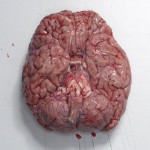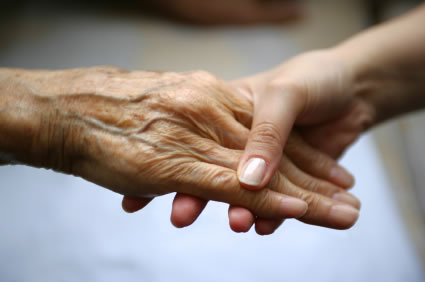Researchers at Karolinska Institutet have shown that they may be able to monitor the aging process in the brain, by using MRI technique to measure the brain lactic acid levels. Their findings suggest that the lactate levels increase in advance of other aging symptoms, and therefore could be used as an indicator of aging and age-related diseases of the CNS. [continue reading…]
Aging
 A University of Toronto study shows that visual attention — the brain’s ability to selectively filter unattended or unwanted information from reaching awareness — diminishes with age, leaving older adults less capable of filtering out distracting or irrelevant information. [continue reading…]
A University of Toronto study shows that visual attention — the brain’s ability to selectively filter unattended or unwanted information from reaching awareness — diminishes with age, leaving older adults less capable of filtering out distracting or irrelevant information. [continue reading…]
Can you trick your aging body into feeling younger? What if it were possible to turn back time? Could it be that we all have the power to think ourselves young again? That’s the extraordinary claim of an experiment first conducted 30 years ago which the BBC is now re-staging.
 Six well-loved celebrities in their 70s and 80s – Liz Smith, Lionel Blair, Dickie Bird, Sylvia Syms, Derek Jameson and Kenneth Kendall – have agreed to spend one week living as though it were their heyday – 1975 – to see if re-living your youth can make you young again.
Six well-loved celebrities in their 70s and 80s – Liz Smith, Lionel Blair, Dickie Bird, Sylvia Syms, Derek Jameson and Kenneth Kendall – have agreed to spend one week living as though it were their heyday – 1975 – to see if re-living your youth can make you young again.
A core element of the original experiment was the idea that our prior beliefs play a huge part in how we perceive the world, and how we perceive ourselves. By immersing the aging actors in a 1970s world, they were hoping to make them think of themselves as younger, fitter and healthier.
It proved to be a fascinating but draining experience – for both experimenters and experimentees. link to find our more about this experiment
Source: BBC Magazine
Authors of the first international comparative study of its kind, analyzed levels of affection and conflict among more than 2,600 parents and children in six developed nations: England, Germany, Israel, Norway, Spain and the U.S. They found that certain nations have developed prevalent, acceptable ways of behaving towards their elders, but that long-term interdependence and heavy care-taking responsibility introduces a major challenge to the relationship. [continue reading…]

